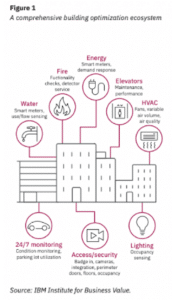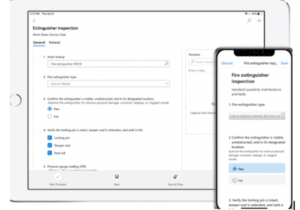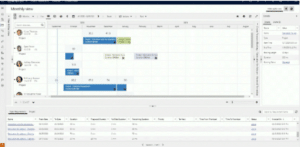Field Service Management for Facilities Management Companies
Learn about solutions that help facilities managers stay on top of everything from field ops and customer care to large-scale projects.
Table of Content
Facilities managers need a comprehensive platform that allows them to manage the full spectrum of tasks.
Technically, Facilities Management, or FM, covers everything that goes into ensuring all residential and commercial buildings, infrastructure, and the surrounding grounds where people live, work, and play are safe, secure, sustainable, and, most crucially, functional for those that rely on these spaces each day.
Facilities management companies are responsible for an awful lot. We’re talking leasing, energy management, maintenance, project planning, space optimization, disaster response & recovery, the list goes on (like, for a while).
That means everything from mundane repair jobs and service emergencies to high-stakes real estate investments and large-scale construction projects to long-term plans that balance sustainability goals with resilience and profitability.
This article looks at FSM solutions that help FMs “do it all.” Or, at least move closer to that impossible ideal.
Facilities managers occupy a unique space.
FMs typically cover a lot of the same ground as, say, home services or commercial HVAC providers, in that they install, maintain, and repair customer assets. But, FM duties also cross over into other areas like property management, construction, utility management, project management, commercial real estate, landscaping, and more.
Meaning, FSM software needs to be part of a broader suite that encompasses all of these areas.
In these next few sections, we’ll explore how the right FSM stack can help facilities management orgs juggle major projects, routine maintenance, and a never-ending to-do list of minor repairs, emergencies, and full-on disruption.
According to a recent IBM report, Building Intelligence into Buildings, AI and the IoT are changing the facilities management game.
FSM software with baked-in AI and ML capabilities, along with data from vast IoT networks, customer insights, and other sources are unlocking new insight categories – energy usage, water quality, occupant satisfaction, asset condition, building security, etc.

The idea is that, by building an intelligent building ecosystem (you can do this via Azure IoT Hub), orgs can ID opportunities to increase efficiency, lower costs, hit sustainability targets, and optimize asset performance.
If you’re using IoT sensors to capture asset or location data, you can build workflows to detect and respond to anomalies that may indicate there’s a problem – allowing you to take action before something important (or expensive) breaks down in a big way.
In-app reporting tools can also analyze these insights and surface recommended steps that help building owners achieve critical goals.
Over time, connected FSM platforms get better at predicting things like asset failures and future demand.
For instance, if you’re managing office space, data from sensor-enabled parking spots, smart meters, even social media trends (think – posts about returning to the office or “WFH”) can inform decisions about IT investments, floor plans, or how many orthopedic chairs you need to order.
Facilities management companies manage large, distributed teams and are responsible for maintaining major appliances, monitoring and optimizing energy usage, and promptly responding to service requests.
They might manage hundreds of properties, with thousands of tenants that expect their landlords to meet their basic needs — access to clean water, heating & AC, a safe environment where they don’t need to worry about rats or carbon monoxide poisoning. You get the idea.
FSM software helps FMs to stay on top of incoming requests, dispatch technicians, and monitor equipment from afar. In turn, they’re able to reduce the number of emergency calls, lower costs (for themselves and their clients), and provide faster, more reliable service.
They can take things a few steps further by providing more self-service options to employees and end-consumers.
For example, FMs can create online portals that make it easier for tenants to report things like leaks, outages, and non-emergency repairs. This convenience also benefits field techs who now have first-hand information about each job, allowing them to bring the right parts and tools they need to fix issues on the first try.
On the employee side, the D365 Field Service app includes several features that make life easier on techs with packed schedules.
You can add specific tasks to work orders to guide techs through routine services like inspections, step-by-step – just like a checklist.

Better yet, you might invest in solutions that enable technicians to run remote diagnostics using IoT, and in some cases, solve the problem without traveling on-site.
FM orgs must simultaneously manage field operations and large, complex projects. Think – new construction, major renovations, or capital planning.
These projects typically involve small armies of stakeholders and literally millions of moving parts. There’s also a good chance that mountains of investor cash are on the line. No pressure…
This means, facilities management companies need to look for FSM solutions with robust project management capabilities. Which, many times, means finding project management software that integrates seamlessly with core financials, field ops, and the rest of the business.
One option is Dynamics 365 Project Operations, which builds on D365 Finance by adding project-specific accounting features, project management tools, and scheduling, time-tracking, collaboration capabilities.
Naturally, D365 Project Ops works seamlessly with D365 Field Service, Sales, and the rest of the MS modules.
That way, you can easily assign technicians to projects based on skills or availability, automate billing for routine services and project milestones, and maximize utilization.
More “mature” FMs can use Universal Resource Scheduling to anticipate future resource needs and plan accordingly.

For smaller operations, ISVs might be the better bet.
Within the MS universe, that might mean extending the D365 Business Central ERP with custom Power Platform apps and partner solutions that fill field service, finance, and project management gaps.
For example, our Advanced Projects for BC solution brings project management and finance tools to D365 BC – enabling flexible forecasting, accurate budgeting & estimation, and robust, project-focused insights.
If there’s one takeaway here it’s this: facilities management companies don’t just benefit from FSM tech, they can’t survive without it.
It’s important to understand that most of the examples we’ve listed above are only possible after you’ve mastered the “digital basics” – and then some. If you’re still using analog spreadsheets and dispatching techs manually from your personal cell phone, a lot has to happen before smart infrastructure shows up in your business plan.
Luckily, the right partner can help you chart a path toward tech-driven success – one step at a time.
Velosio offers end-to-end solutions designed to help facilities managers stay on top of everything from field ops and customer care to large-scale projects, complex financials, and competing priorities.
Talk to us about how Velosio can help you realize business value faster with end-to-end solutions and cloud services.